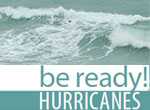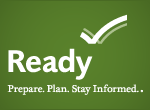Safety Information for Health Care Professionals

If you’re a health care professional helping at an emergency site, here’s information that will help you care for survivors.
Medical Care After a Hurricane
-
Immunizations After a Disaster
Find recommendations for vaccinations, tetanus prevention, and the impact of power outages on vaccine storage. -
Medical Management and Patient Advisement
Get information for assisting patients, including pregnant women, and guidelines for treating health risks like diarrhea, injuries, and infectious diseases. -
Medical Records
Learn about “Keep It With You” — a temporary personal medical information form for people who don’t have access to their medical records. -
Pediatric Environmental Health Specialty Units (PEHSUs)
Find information from a national network of clinics that offers health professionals free clinical advice about environmental risks for children. -
Dialysis Care
Read about treating people on dialysis when the water supply may be unsafe.
Health Risks After a Hurricane
-
Clinical Guidance for Carbon Monoxide (CO) Poisoning After a Disaster
Get information about at risk populations, sources of CO poisoning, and how to recognize and treat it. -
Mold After a Disaster
Find resources about preventing and removing mold and treating mold allergies. -
Health Recommendations for Workers Who Handle Human Remains
Get advice on protecting yourself from disease during contact with human remains. -
Management of Dead Bodies in Disaster Situations
Consult a manual from the Pan American Health Organization for specialists and authorities managing disaster sites.
Helping Survivors Cope with Trauma
-
Coping with a Disaster or Traumatic Event
See resources for the public, teachers, responders, and health professionals. -
Health Professionals: Coping with a Traumatic Event
Find advice on how to help patients cope with a traumatic event. -
Tips for Managing Stress: A Guide for Emergency Response and Public Safety Workers
Get tips for stress management and prevention advice from SAMHSA. -
Tips for Survivors of a Traumatic Event
Learn what people should expect to feel after a disaster. -
Coping with Traumatic Events
Check out information from SAMHSA about how people react to trauma and when to get help.
Other Resources
-
Surveillance
Get surveillance forms, community and shelter assessment tools, and other public health assessment (PHA) forms. -
Drug and Medical Device Safety
Find suggestions for medication use, insulin storage, disposal of contaminated devices, and information about using medical devices during and after an emergency. -
Questions About Clinical Investigations Affected by Disasters
Get information from the FDA about what to do if a disaster affects your research. -
Reopening Health Care Facilities
Learn about safety precautions before reopening health care facilities.
You may want to give information to survivors after a hurricane about the risks they might face at home. Visit Evacuee Educational Materials for free resources.
- Page last reviewed: August 25, 2017
- Page last updated: August 25, 2017
- Content source:
- National Center for Environmental Health (NCEH); Agency for Toxic Substances and Disease Registry (ATSDR); Office of Noncommunicable Diseases, Injury, and Environmental Health (ONDIEH); National Center for Chronic Disease Prevention and Health Promotion (NCCDPHP); National Center for Birth Defects and Developmental Disabilities (NCBDDD)


 ShareCompartir
ShareCompartir


